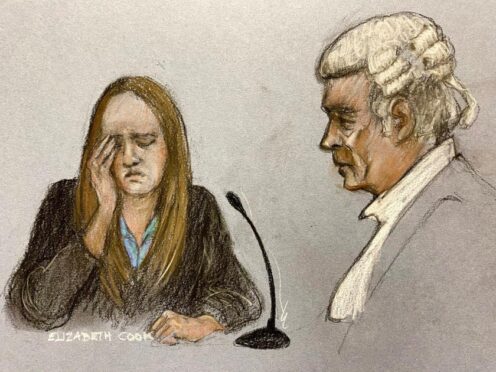Users on social media have claimed that an article in the New Yorker magazine about convicted child killer Lucy Letby has been blocked in the UK by the publisher because it could “undermine confidence in the justice system”.
Evaluation
Access to the article has been limited in the UK in order to “comply with a court order”, the New Yorker said.
Letby is due to face a retrial in June on one count of attempted murder on which the jury had previously been unable to reach a verdict.
In England, it is generally prohibited to publish anything which might prejudice a trial before it takes place.
The 34-year-old nurse has also submitted a bid to challenge her convictions at the Court of Appeal but the full details of her grounds for appeal cannot currently be reported because of a court order.
The facts
In August 2023, Lucy Letby was found guilty of the murders of seven babies and the attempted murders of six others at the Countess of Chester Hospital’s neonatal unit, where she worked as a nurse, between June 2015 and June 2016..
The jury returned not guilty verdicts on two counts of attempted murder.
She was sentenced to life imprisonment with a whole-life term, which means she will never be released from jail.
The jury was unable to reach a verdict on a further six counts of attempted murder and the Crown Prosecution Service said in September that it would seek a retrial on one of these counts.
At the time the CPS said: “There should be no reporting, commentary or sharing of information online which could in any way prejudice these proceedings.”
The 34-year-old has also submitted a bid to challenge her convictions at the Court of Appeal.
The full details of that appeal bid, which was argued on four points, cannot currently be reported for legal reasons, with the panel of judges reserving their decision to a later date.
On May 13 2024, the US-based New Yorker magazine published an investigation about Letby in print and on its website. However, people trying to access the article online from the UK were told: “Our apologies. This is, almost certainly, not the page you were looking for.”
[pa_oembed = 81f410b82471b4b513394ca0a54bbf56]In a statement to Press Gazette, the magazine said: “The New Yorker has limited access to Rachel Aviv’s article for readers in the United Kingdom”, in order to “comply with a court order”.
This differs to what some social media users had claimed, that access to the article was limited in the UK because it could “undermine confidence in the justice system”.
At the time of writing, the most widely shared post on X, formerly Twitter, said: “Why is The New Yorker’s article on Lucy Letby not available for us to read in the UK? It ‘could undermine confidence in the justice system’ is absolutely shocking.”
The origin of the quote in that post about undermining the justice system is unclear.
That post was made on the morning of May 14 and another post from the evening before uses very similar wording (swapping out “could” for “might”), but does not put the claim in quotation marks.
The phrase “undermine confidence in the judicial system” does appear in the New Yorker article itself, but in a very different context.
When discussing her attempts to contact Letby’s lawyers, Ms Aviv wrote: “Lawyers in England can be sanctioned for making remarks that would undermine confidence in the judicial system.”
Links
CPS statement on Lucy Letby verdict (archived)
CPS statement on Lucy Letby retrial decisions (archived)
